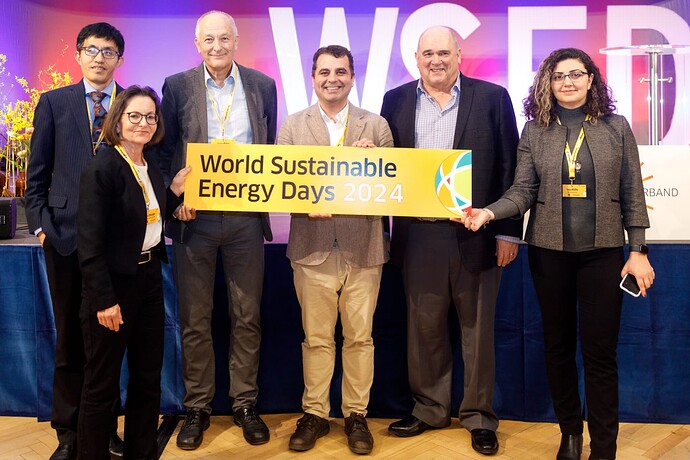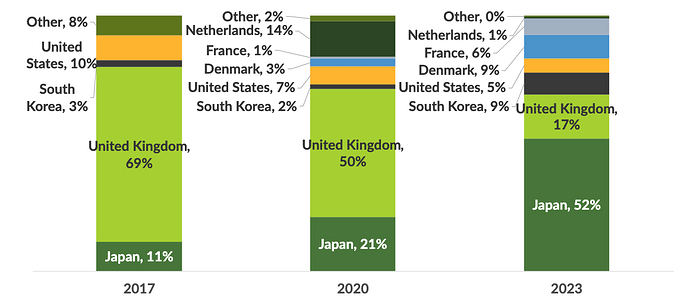The Wood Pellet Association of Canada (WPAC) was invited to moderate a session at the European Pellet Conference in Wels, Austria, in March 2024. Leading international speakers presented the latest market trends, policies, technologies, and innovations, providing an important avenue for Canadian pellet producers and associations to stay on top of developments in the pellet and bioenergy world.
This year’s conference focused on regaining the acceptance of pellets as an important element in the clean energy transition and increasing their positive contribution to forest health and the circular economy.
Experts also discussed new results of R&D projects and the latest developments in the pellets and bioenergy sector: technological innovations along the value chain from pellet production, supply, and distribution to successful showcases for an accelerated energy transition.
Pellet Updates from Around the World
The session I moderated—World of Pellets—included a panel of experts from Spain, Vietnam, Austria, Turkey, China, and, of course, Canada. We each updated the audience on pellet trends in our respective countries.
Vietnam is the second largest wood pellet exporter in the world after the United States. Nearly 95% of the country’s pellet production goes into two markets: Korea and Japan. In Vietnam’s northern and southern regions, 30% of the raw materials used to make pellets come from domestic plantations, with the remainder from wood processing residuals. In the country’s central region, 90% of the raw materials are derived from domestic plantations, with the remaining 10% from residuals.
In China, the use of more modern appliances is driving the demand for switching to cleaner fuel sources. More than 800 million tonnes of agricultural residuals and more than 1,000 million tonnes of forest and orchard waste could be converted. Today, there are over 2,000 manufacturers of solid biomass solutions in the form of pellets and briquettes.
I highlighted the evolving global market focus for Canadian producers. Lower transportation costs from the west coast of Canada and increased demand from Asia have meant a shift in our market emphasis to Japan and Korea. There is a growing uptake of bioenergy domestically despite Canada’s vast hydroelectricity grid. Further financial incentives and the removal of trade barriers for European boiler suppliers are needed if Canada is to leverage its biomass potential fully. A growing body of experts believing the pellet sector has a critical role to play in converting excess forest floor debris (fuel) into renewable energy and rehabilitating forests after fire.
European Policy Files
The main European Union (EU) policy files continue to be the Renewable Energy Directive (REDIII) and the European Union Deforestation Regulation (EUDR). Two others that are on the radar are the Ecodesign Labelling Directive and the Energy Labelling Directive. The Ecodesign and Energy Labelling Directives set emission limits for which products can be commercialized in the EU.
Austria: Example of Compelling Domestic Communications Campaign
Austria continues to tell a compelling pellet and bioenergy story, with clear actions and obvious wins. In large part due to the solid work from OÖ Energiesparverband in Upper Austria, 60% of space heating in the region comes from biomass, further supported by a strong domestic equipment sector. Today, 25% of all modern small-scale bioenergy boilers installed in the EU are manufactured in that region. Their communications campaign in 2023 resulted in 50,000 calls on the hotline and 20,000 energy advice sessions.
Recommendations from OÖ Energiesparverband for countries like Canada embarking on the domestic expansion front include:
- Understanding, quantifying and communicating the benefits.
- Leveraging the consumer groups most likely to be activated and have a plan on how best to reach them.
- Identifying and overcoming gaps in the supply chain.
- Advocating for policies using a “package” approach: financial incentives, effective and practical policies and strong communications.
Canada should continue to look to Europe as they continue to lead in the global development of the pellet and bioenergy sectors on all fronts: domestic and international, residential, commercial, and industrial.
Read my 2024 European Pellet Conference Trip Report for more information on the conference.

